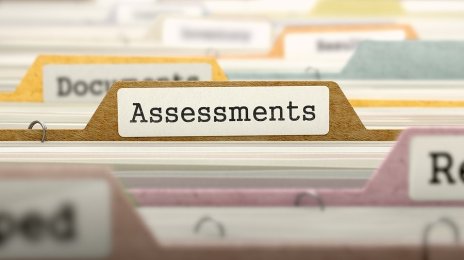LCSW Exam Prep
Free Practice Question: Assessment
For this week’s MFT practice question, we explore the subject of assessment. If you are preparing for your licensing exam, whether the Law and Ethics or Clinical exam, you can expect to see multiple questions on this topic. The importance of conducting a thorough assessment cannot be overstated. Comprehensive assessments are necessary at the onset of treatment to help clinicians understand why their client is seeking treatment, what their client hopes to achieve, if any crisis issues are present and require attention, and ultimately allows them to develop an effective treatment plan. Knowing when to assess and what the priorities of assessment are will both be tested on your exam.
Answer and Rationale for LCSW/LMSW Practice Question on Suicidal Clients
Yesterday we posted the following question about suicidal clients, and today we have the answer and rationale for you!
LCSW/LMSW FREE Practice Question: Suicidal Clients
As you all know, September is Suicide Prevention Month, and here at TDC, we are using the month as a platform to begin conversations around this often-taboo topic. If you’re studying for your licensure exam, whether a social work exam OR a MFT exam, you’ve probably found that this topic is front and center. There’s a good reason for that: at some point in our professional lives we will almost certainly work with at least one client who wants to end his or her life. Our state boards and licensing organizations want to ensure that as competent professionals we can recognize the signs and symptoms of potential suicide, assess for it accurately, and take the necessary steps to help our client’s stay safe.
Combatting Test Anxiety with Self-Compassion
Last month I wrote about the role anxiety plays in preparing and sitting for your licensing exams. In particular, my goal was to assure you that anxiety is not only a normal part of the process, but can even benefit your study process. If you didn’t have an opportunity to read it, here is the link. As I discussed in the last blog, while a moderate amount of anxiety can be beneficial, too much or too little can actually be detrimental. In this month’s blog, my goal is to help you develop awareness around your anxiety and begin developing skills to temper it when it becomes too high.
Meditation Blog: Intro to Progressive Muscle Relaxation
Five years ago, I hadn’t yet been introduced to the concept of mindfulness and the idea of creating a daily meditation practice was far from my radar. As I entered into my first practicum experience where mindfulness was central both to the office culture and the mode of therapy used (DBT), I was unaware how foundational this would become to my own clinical and personal practices.
Answer and Rationale for MFT Question on Duty to Warn
On Friday we posted the following question on our Tarasoff duty, and today we have the answer and rationale for you!
Free MFT Practice Question: Duty to Warn
This week our practice question explores Tarasoff and our duty to protect. Oftentimes, people struggle with questions on this topic because the subject itself feels a bit abstract. Many clinicians have read case law and studied Tarasoff in graduate school, but have not encountered these situations in clinical practice. And while it is an intimidating prospect, the likelihood of our duties being triggered under Tarasoff is thankfully low. However, the BBS still wants to ensure you know what to do in the unlikely event you find yourself in this situation.
Answer and Rationale for MFT Practice Question on Suicidal Clients
On Friday we posted the following question on suicidal clients, and today we have the answer and rationale for you!








